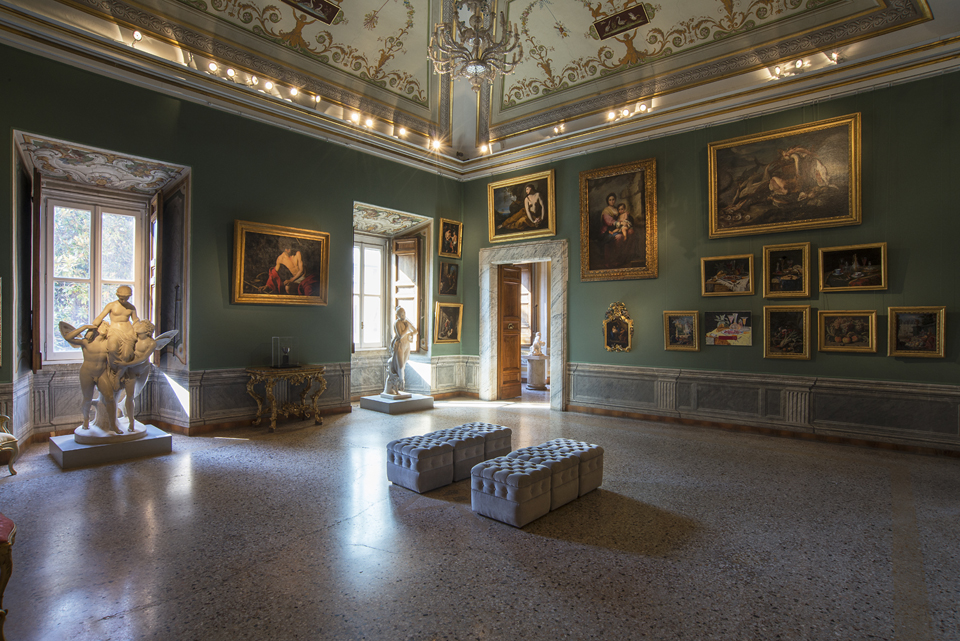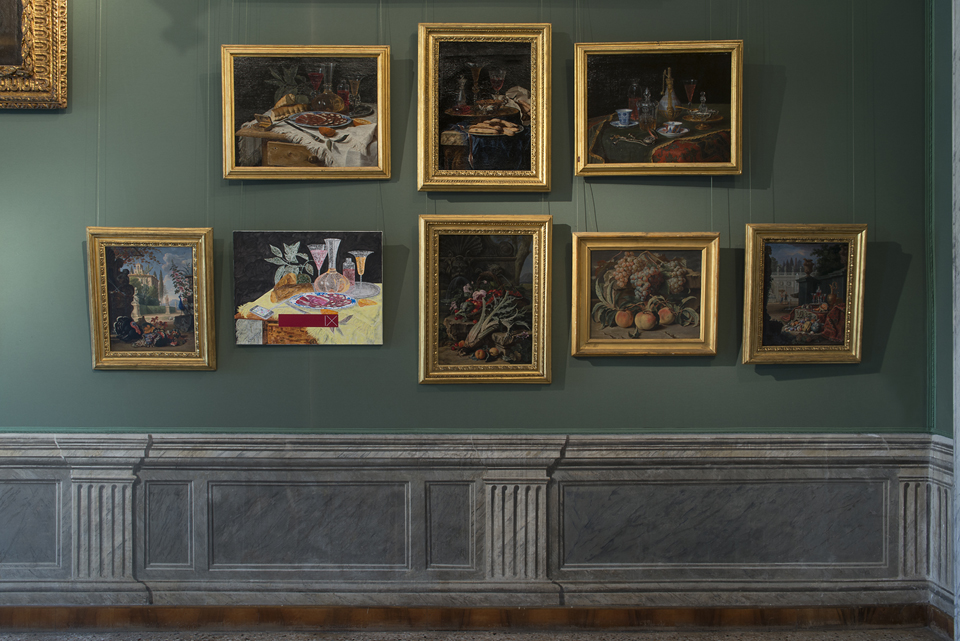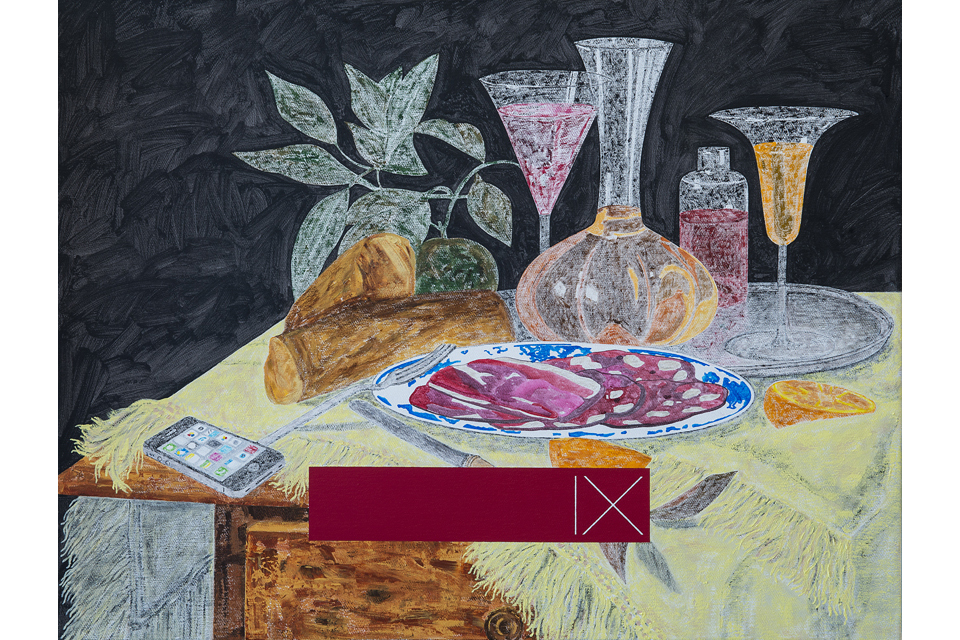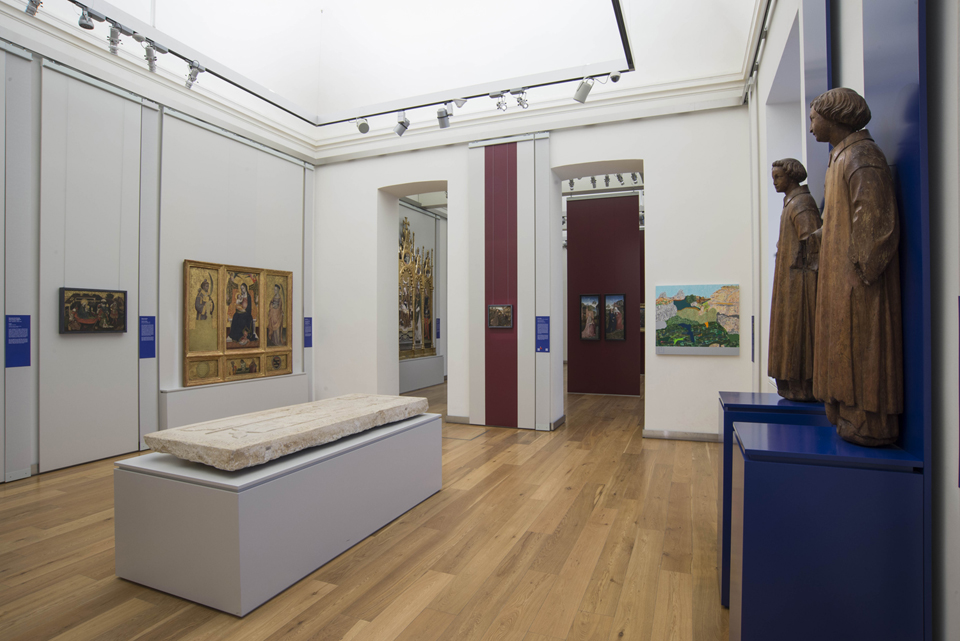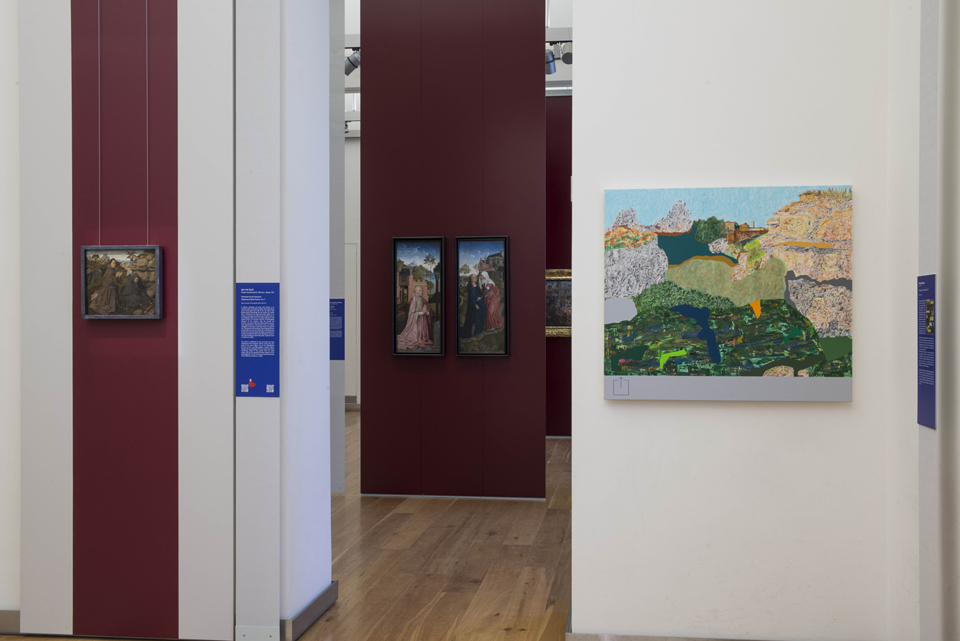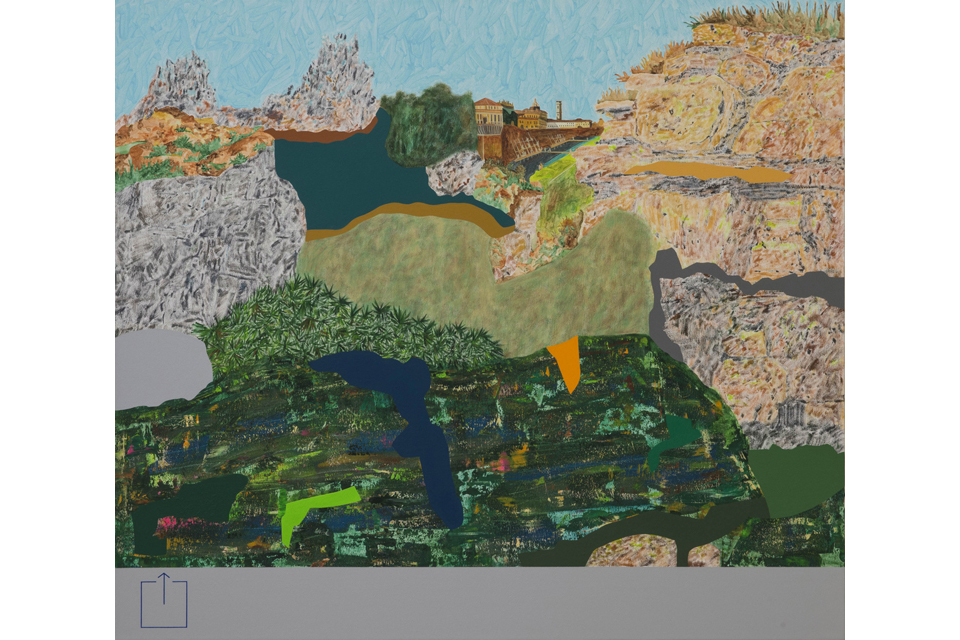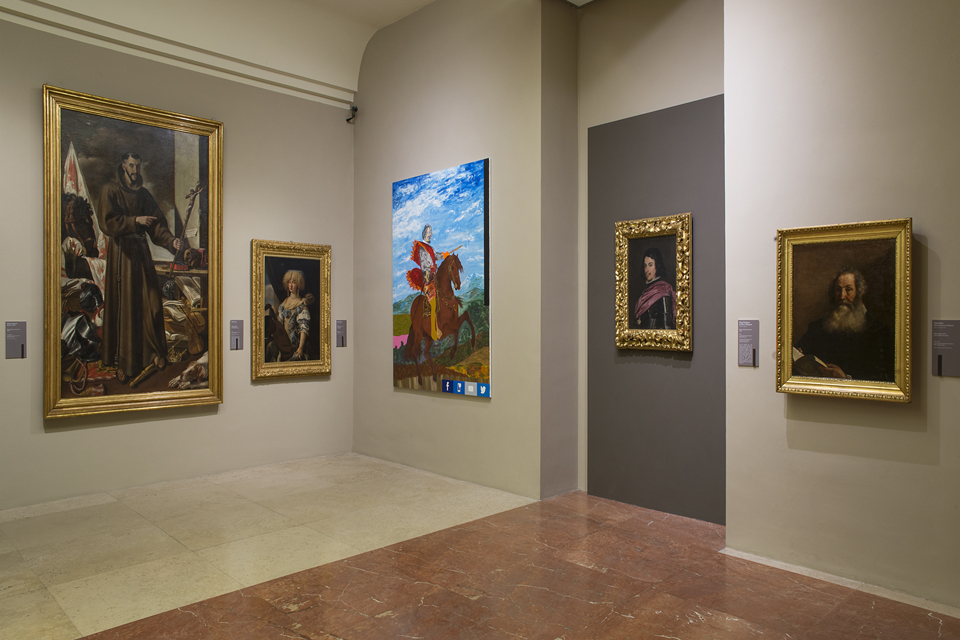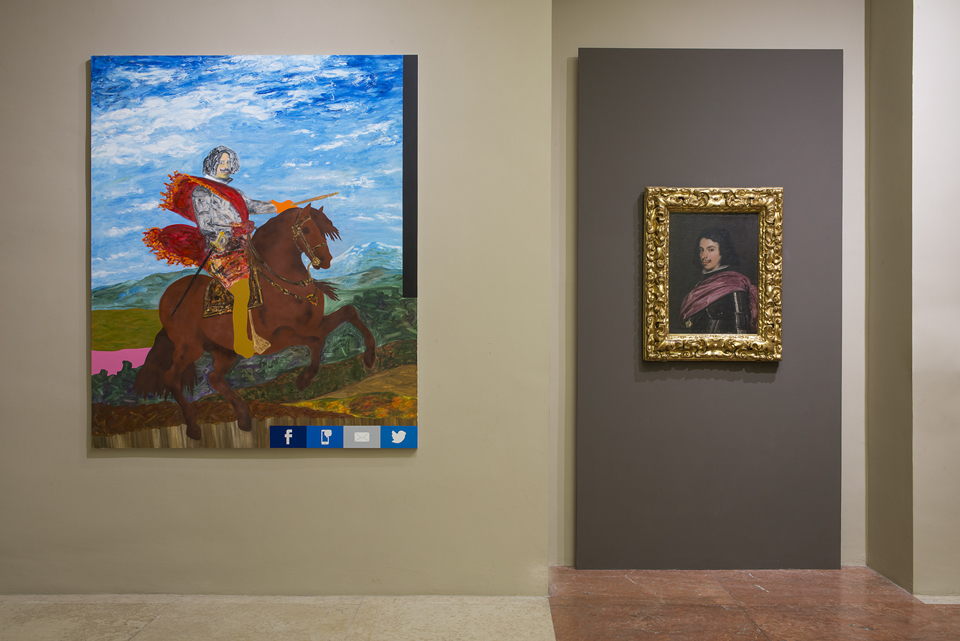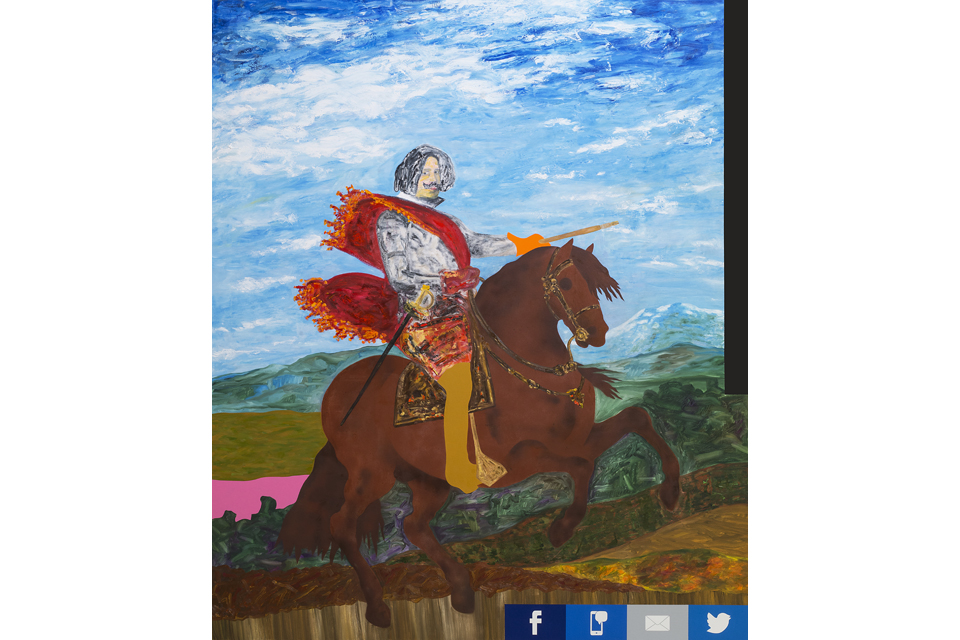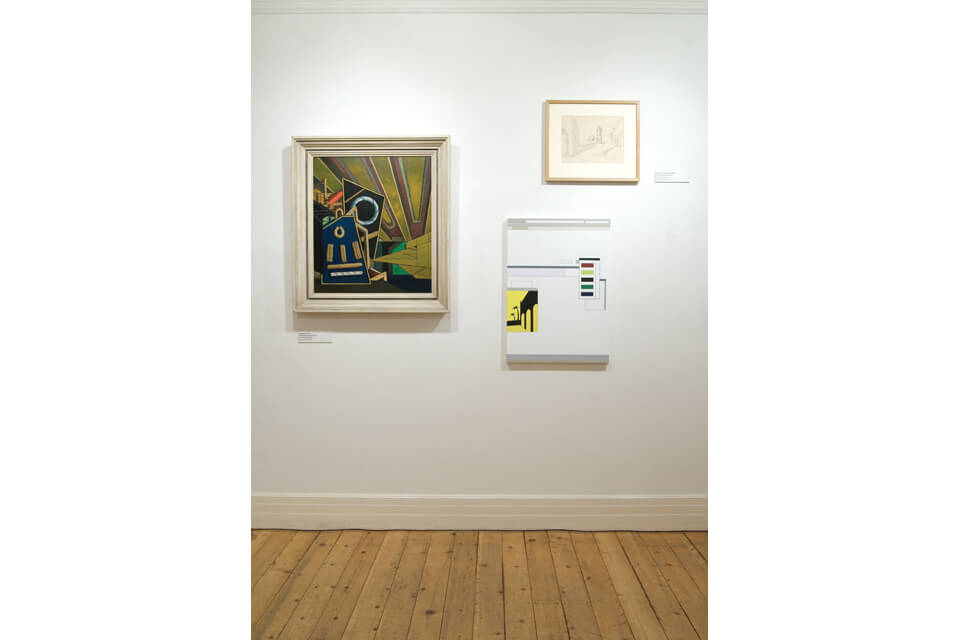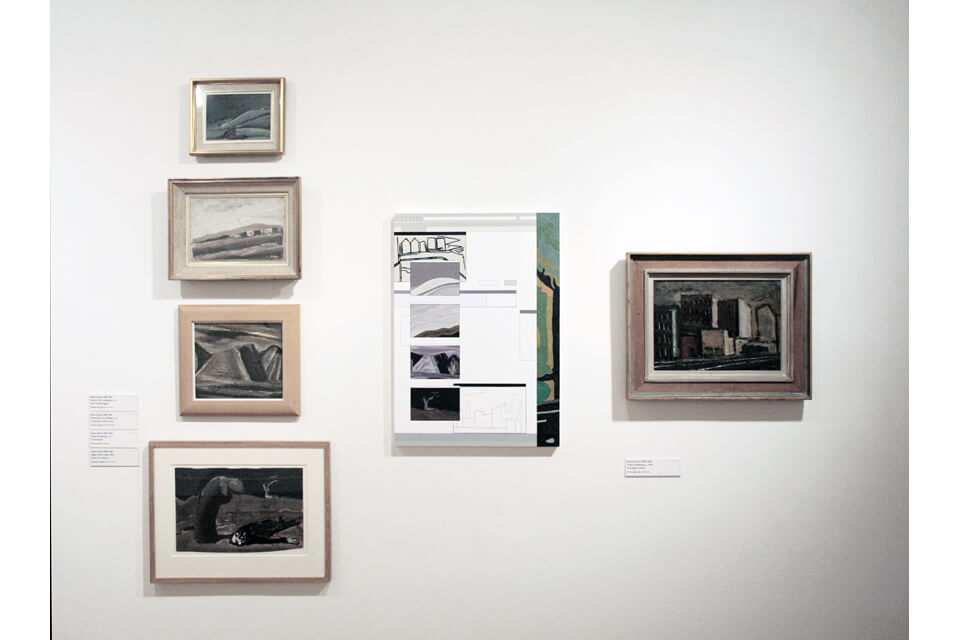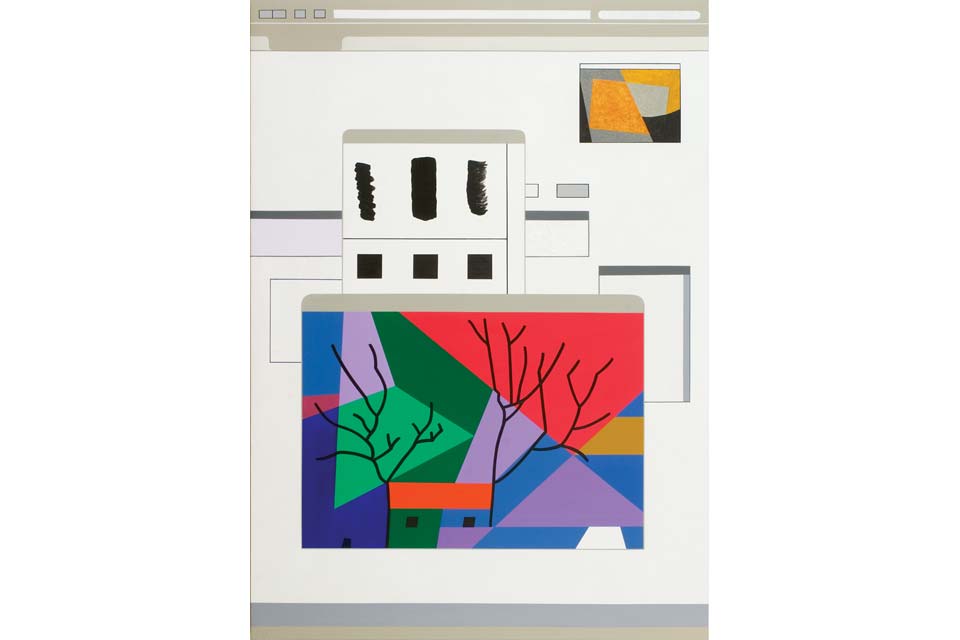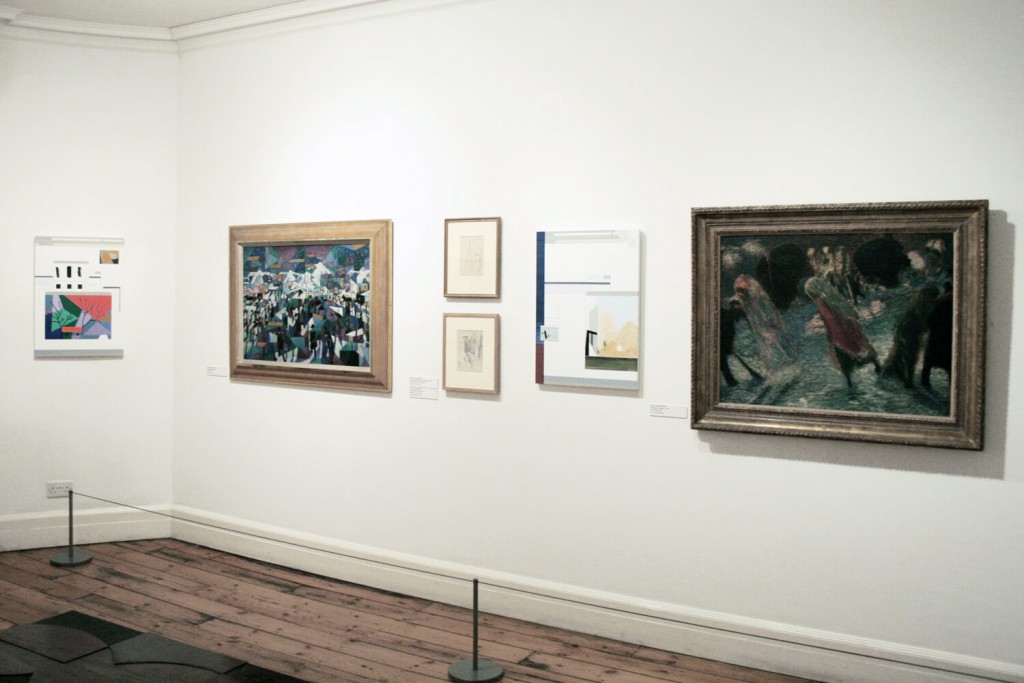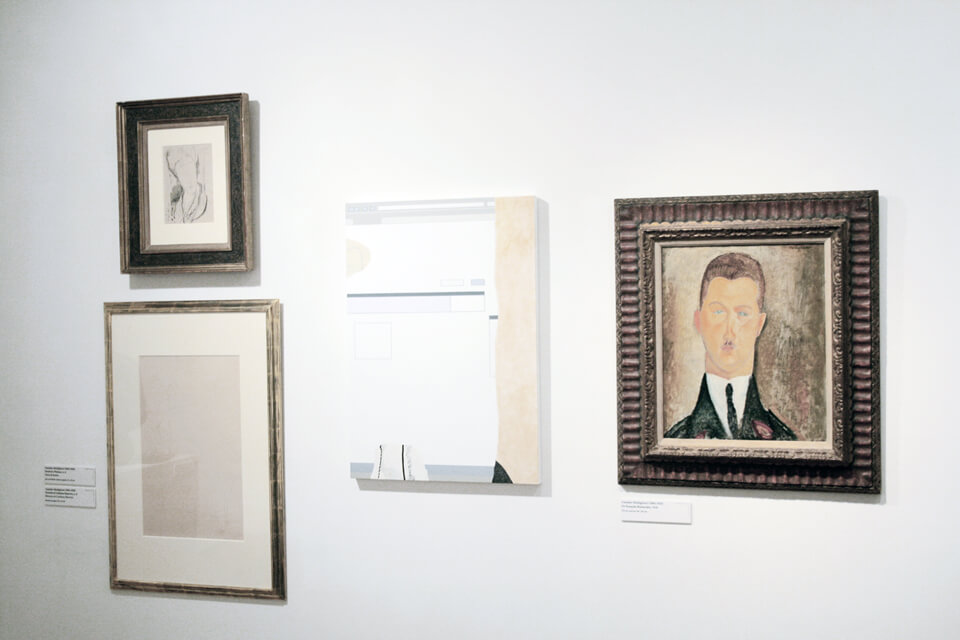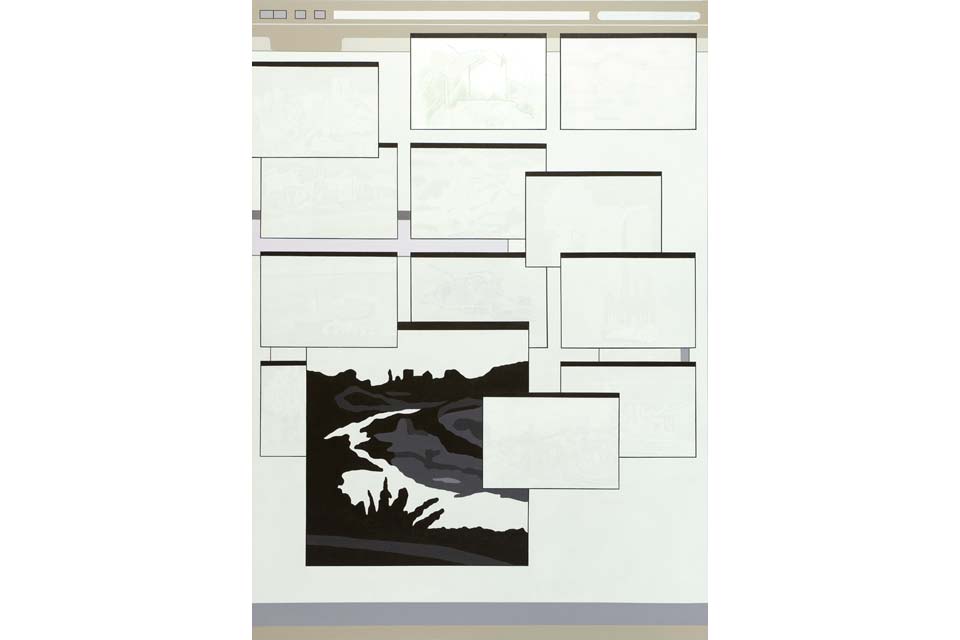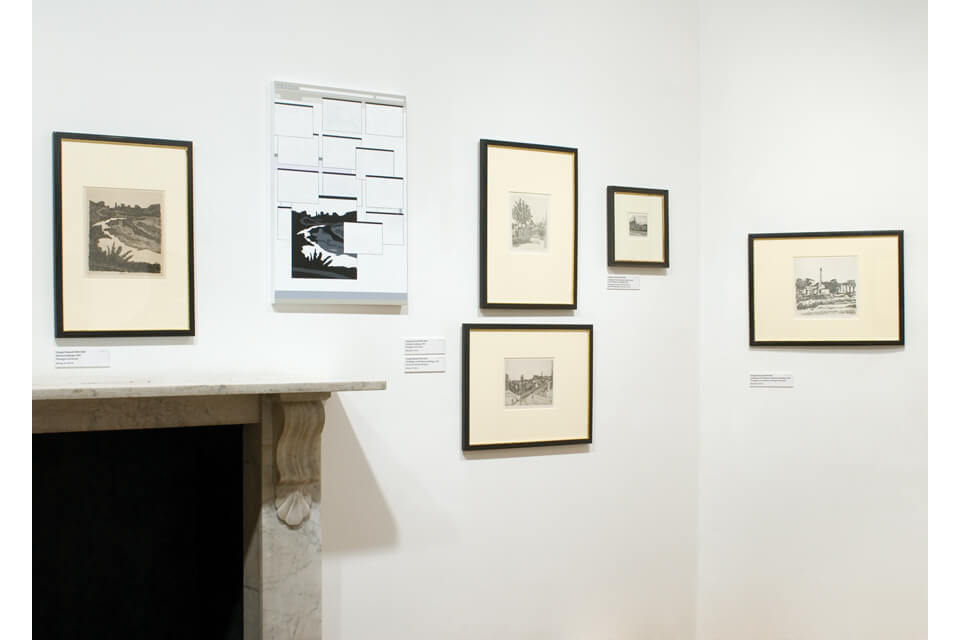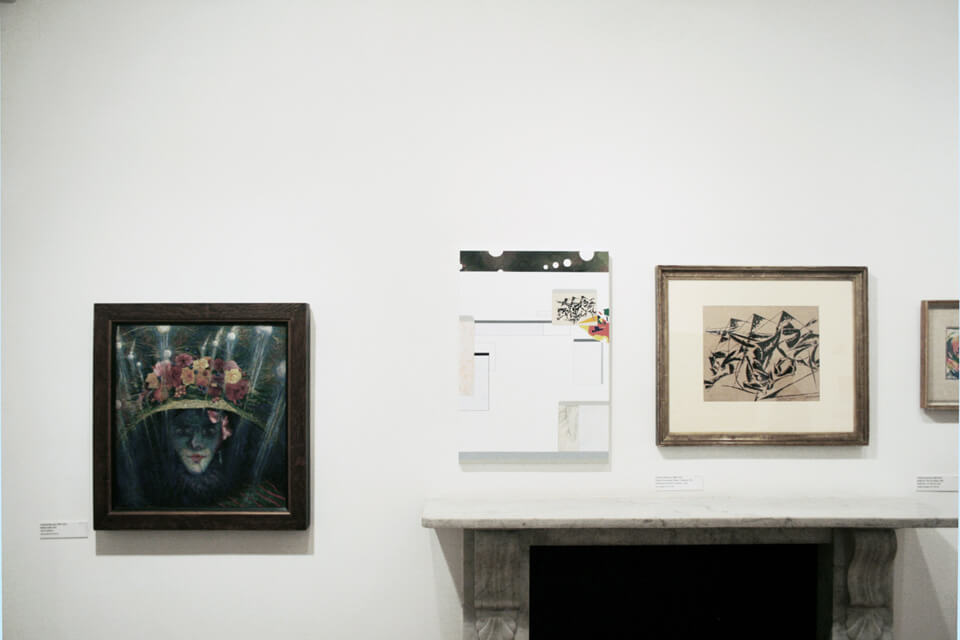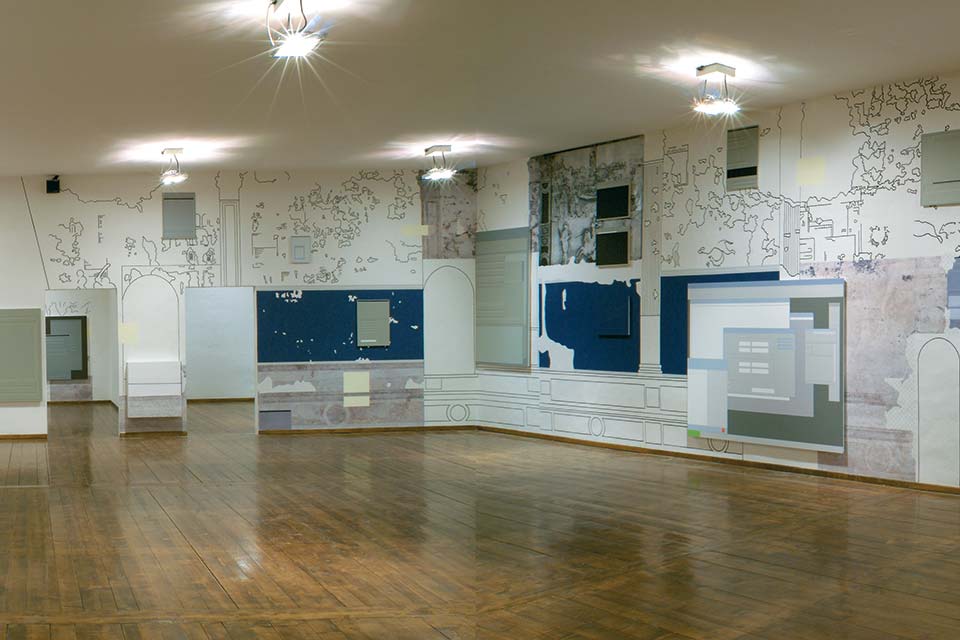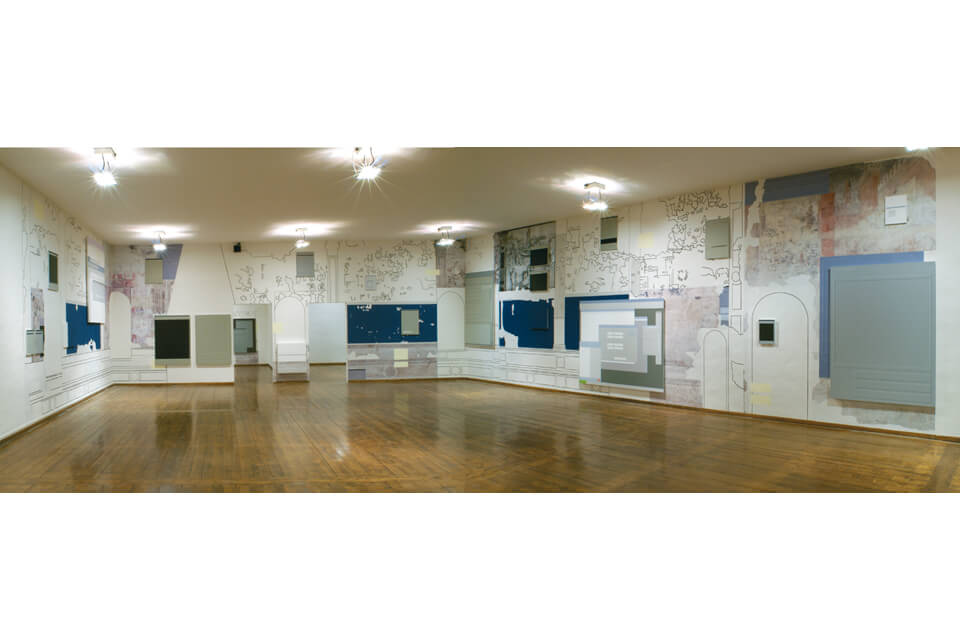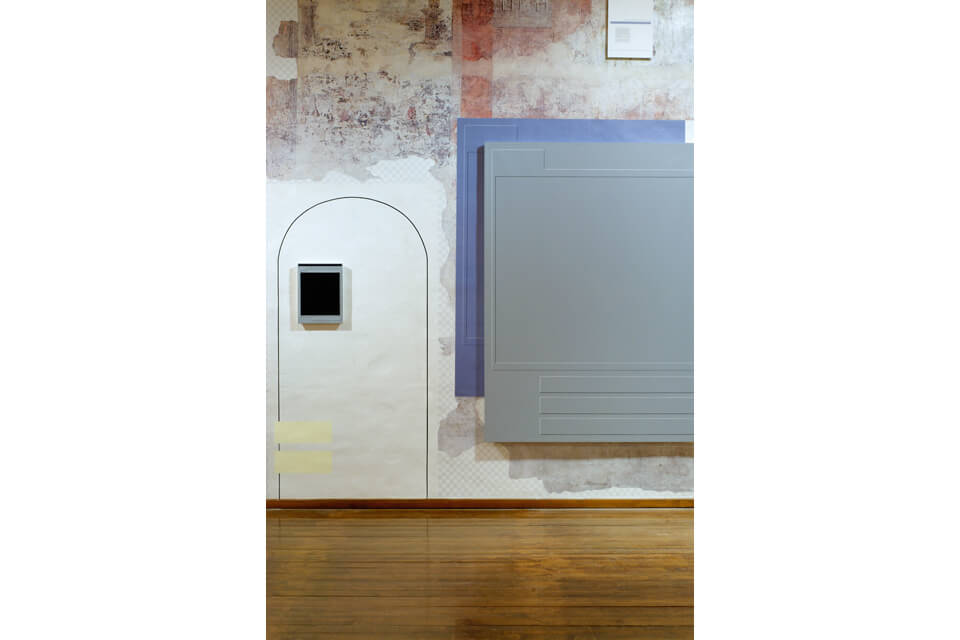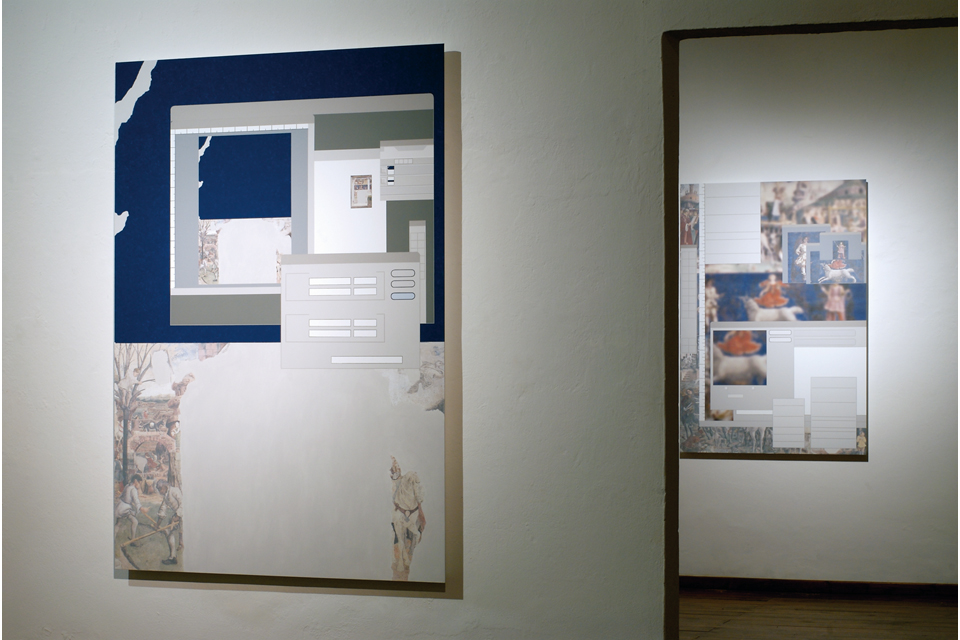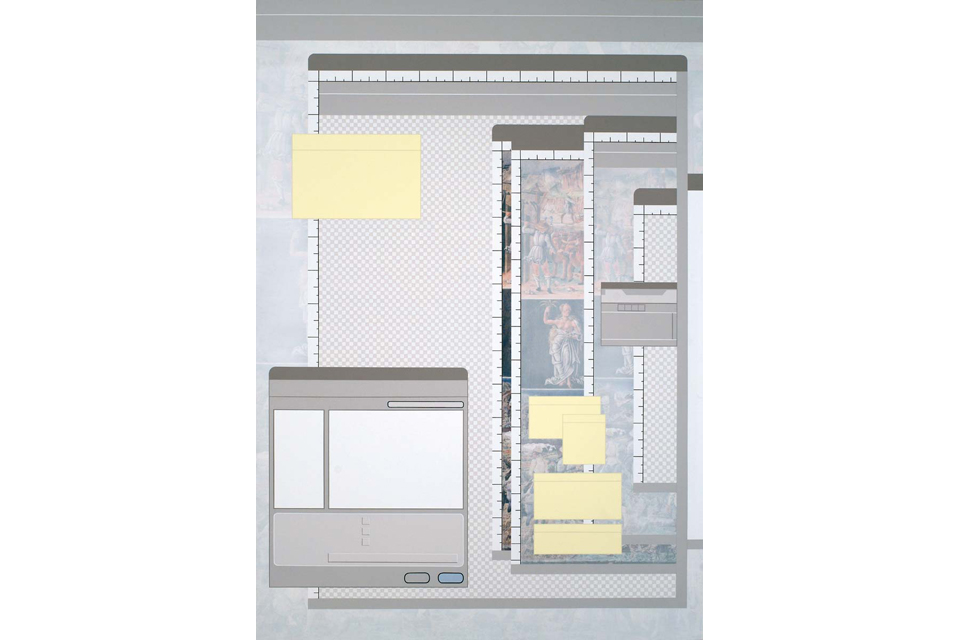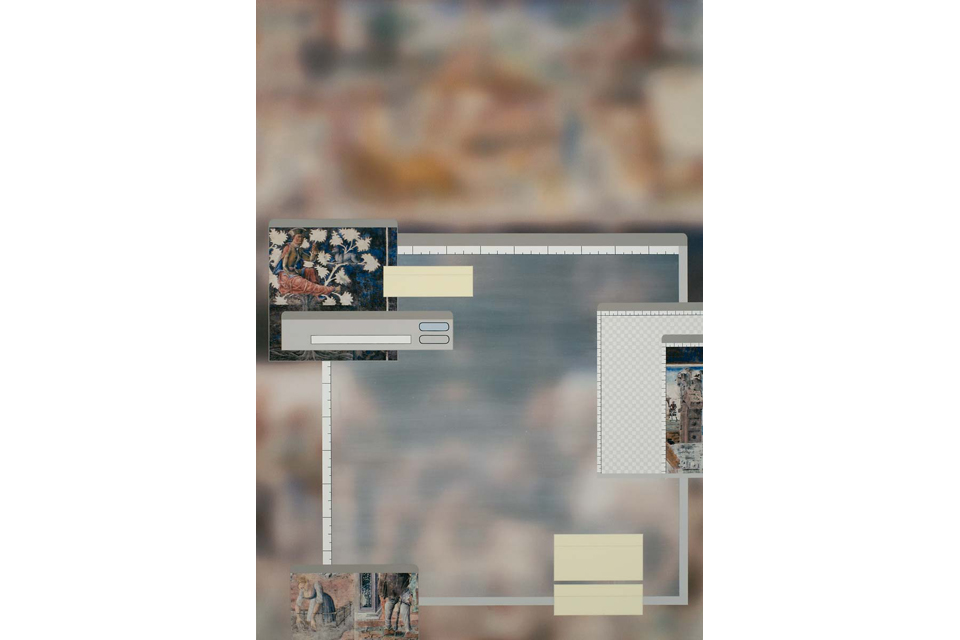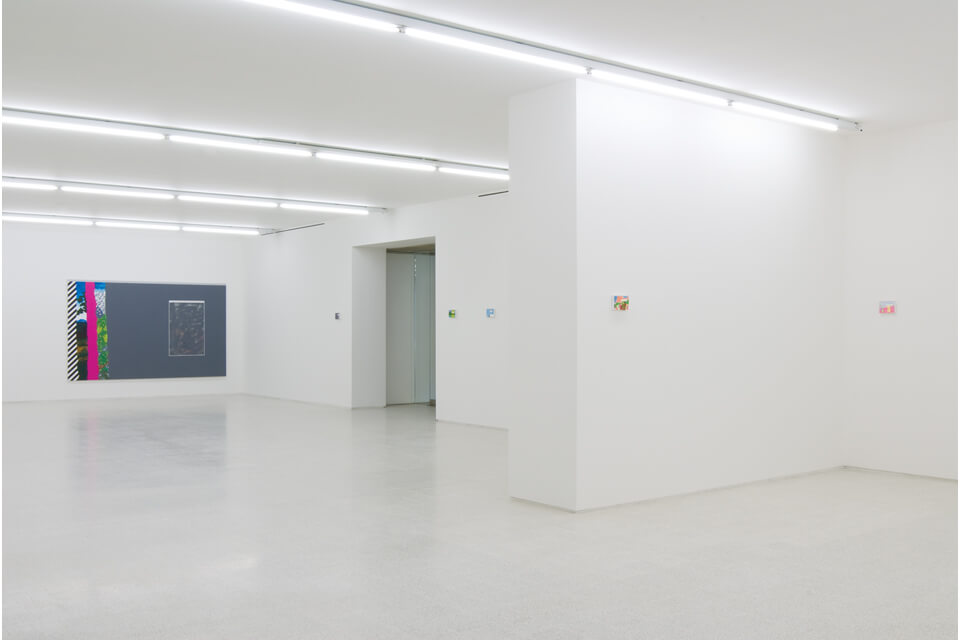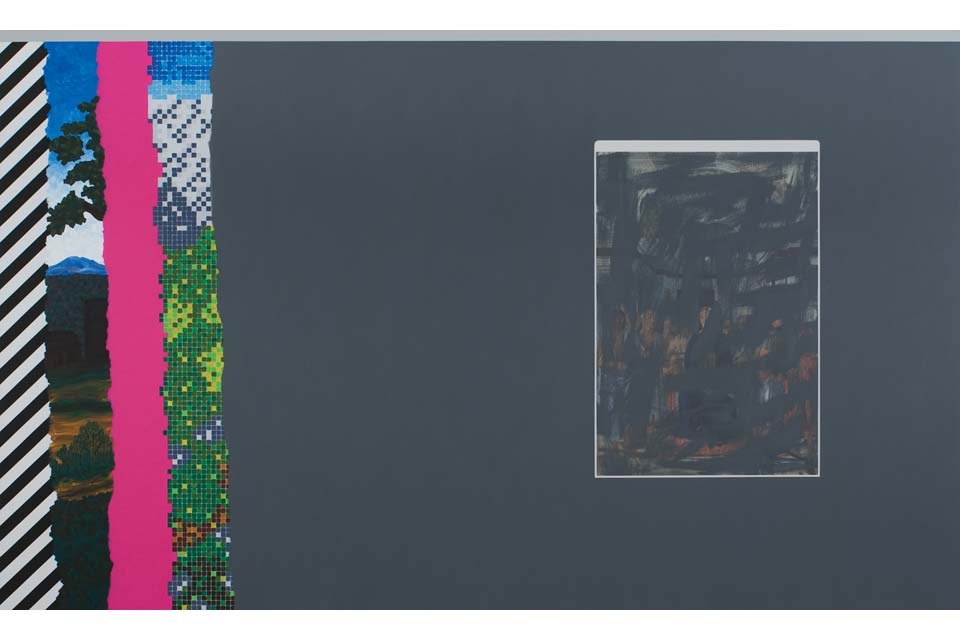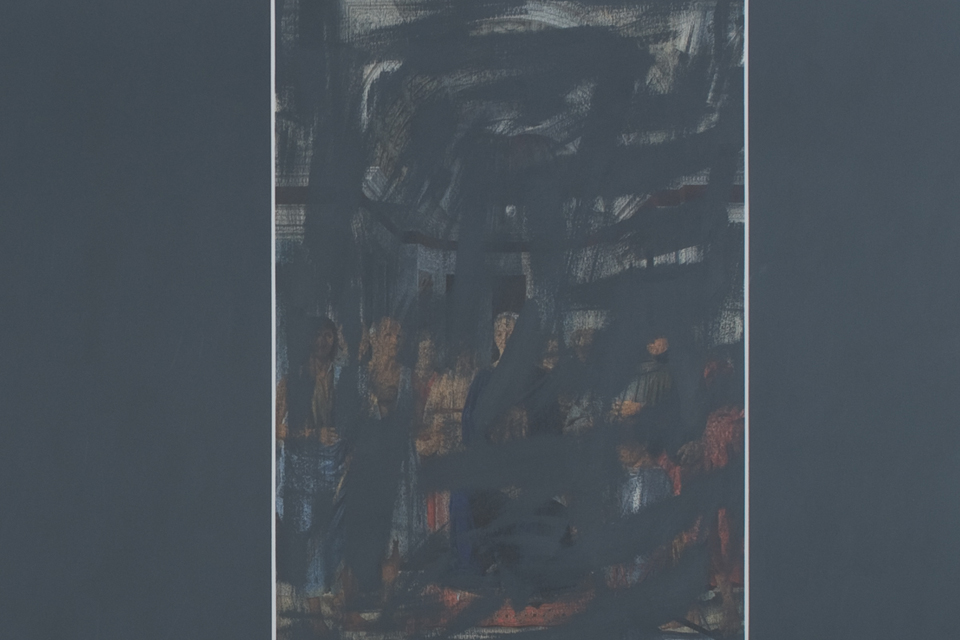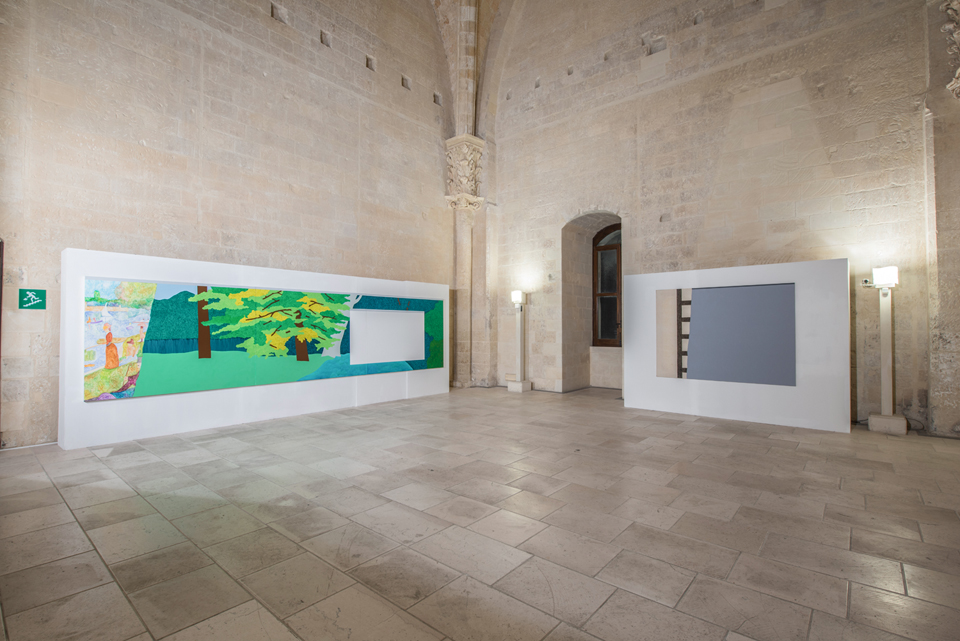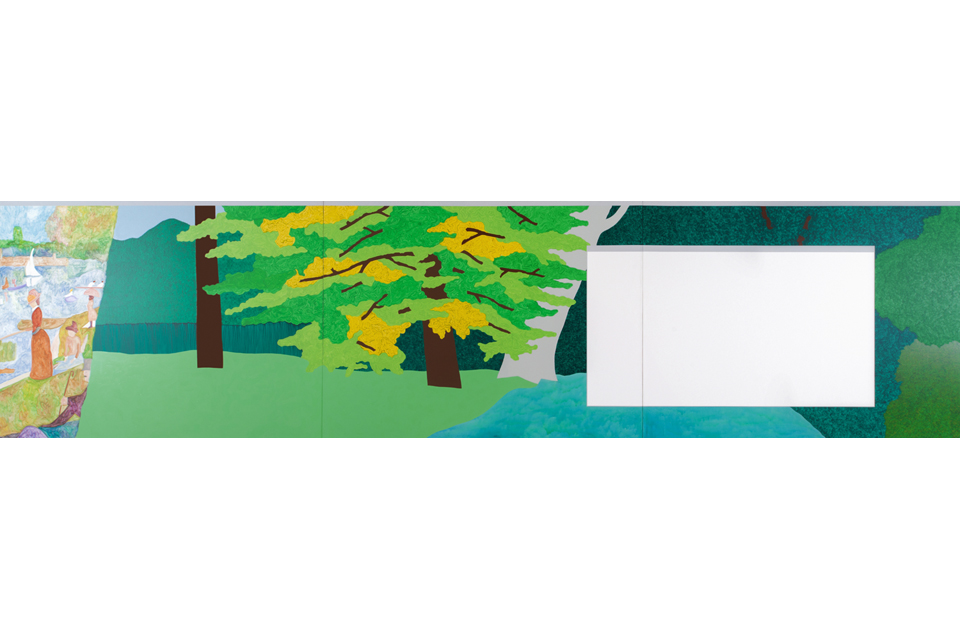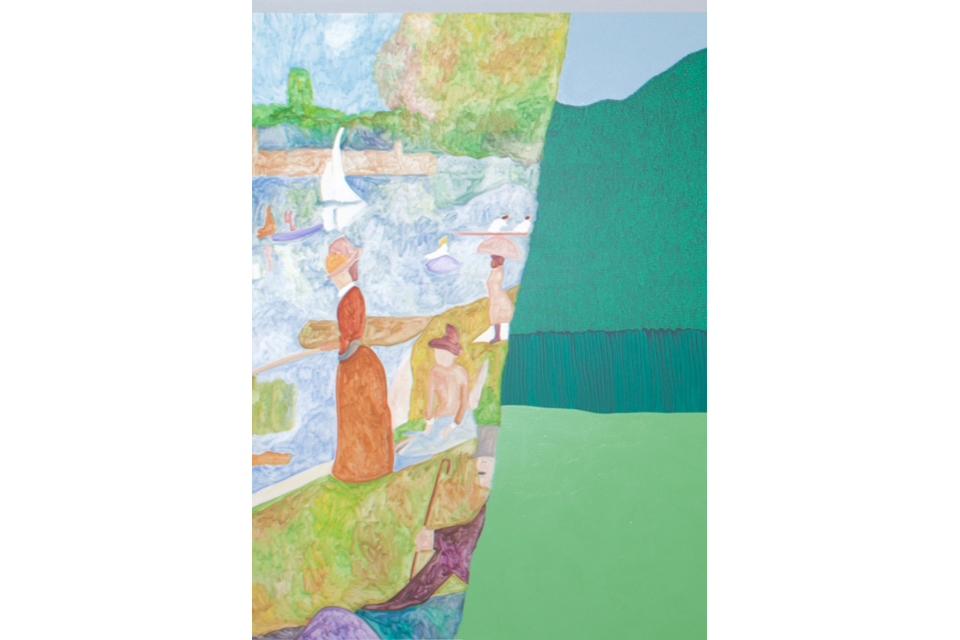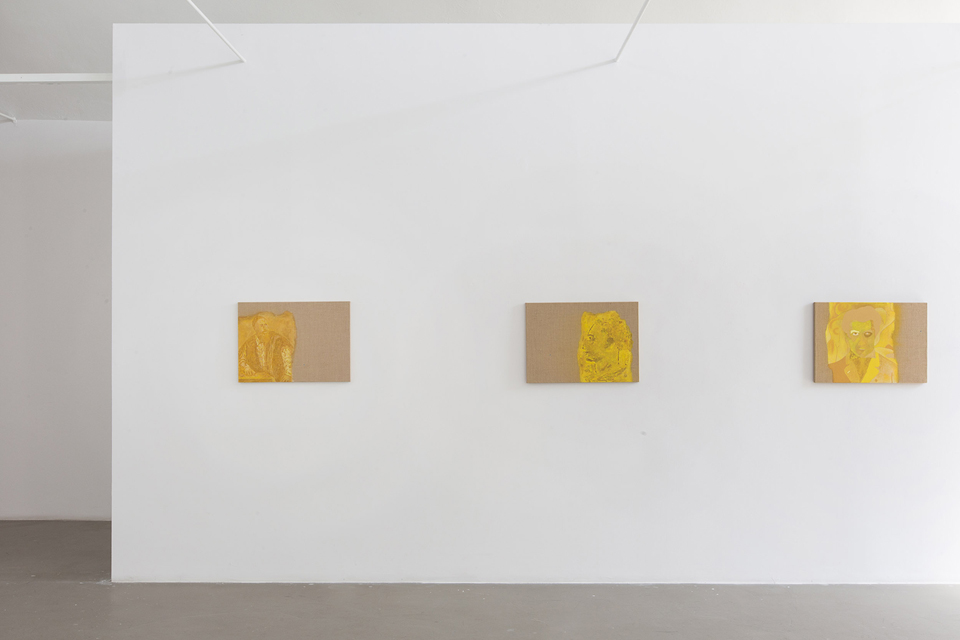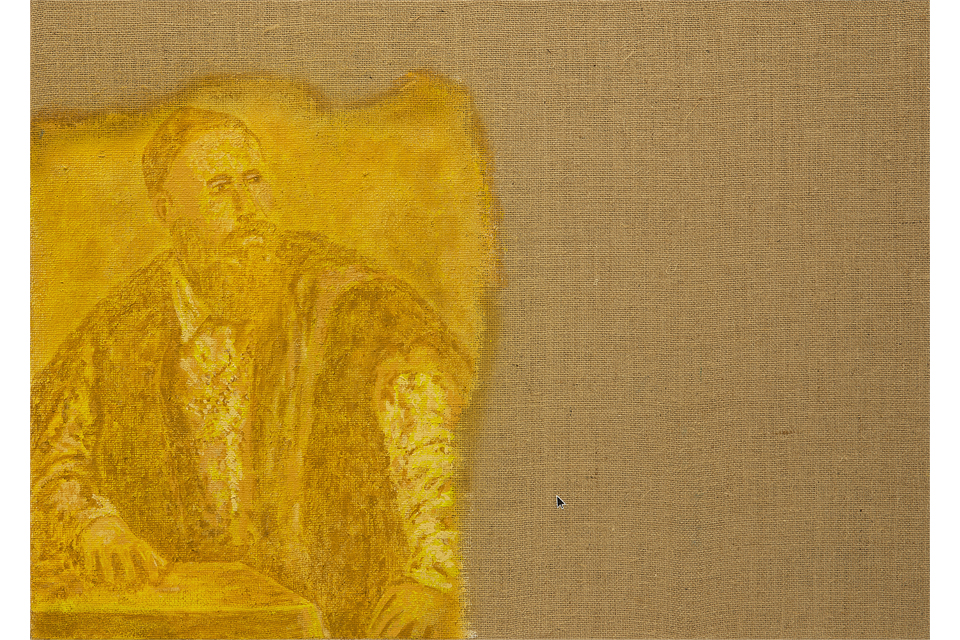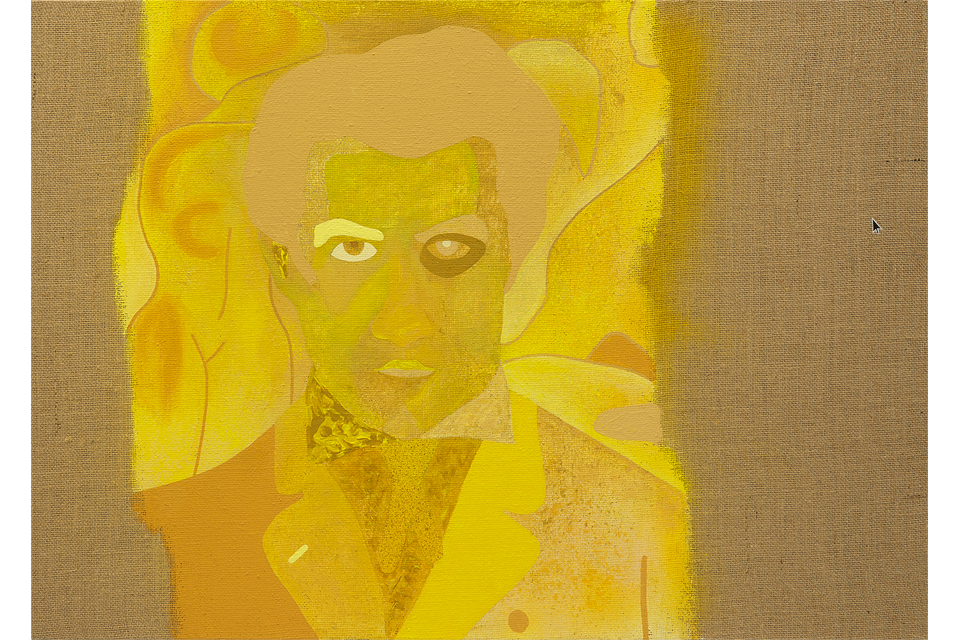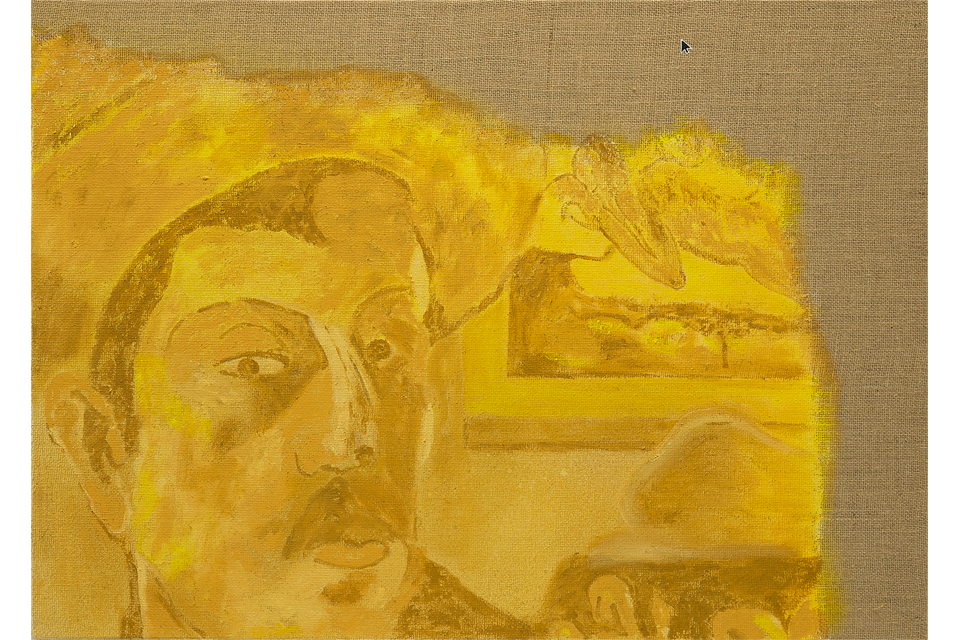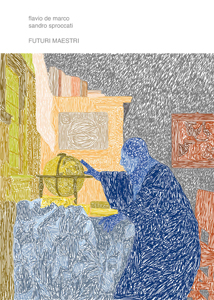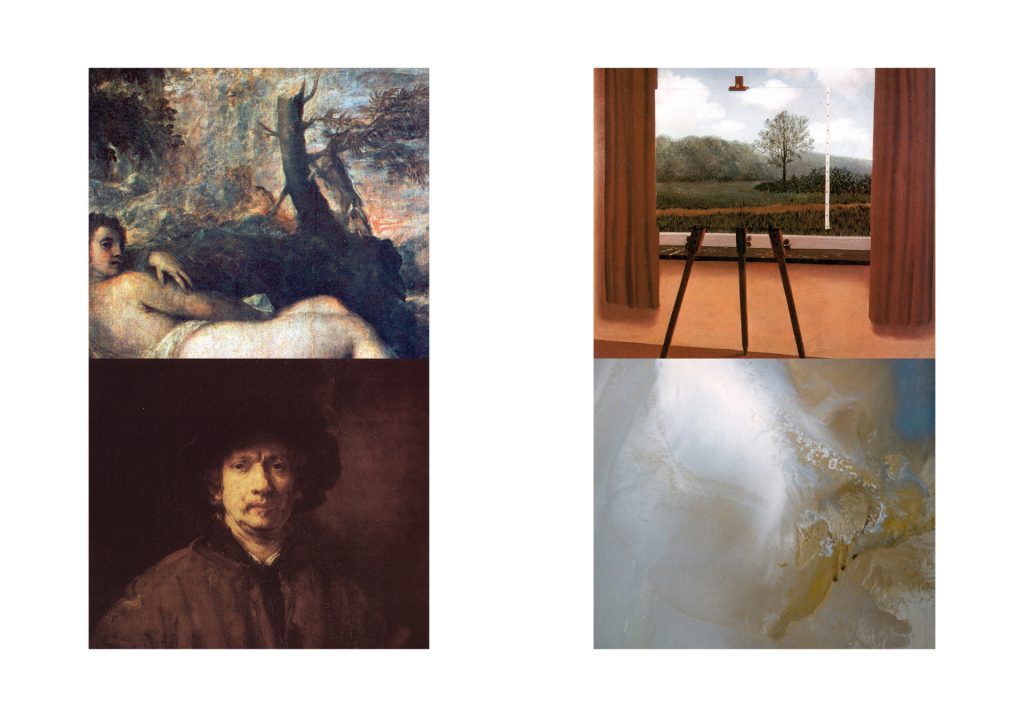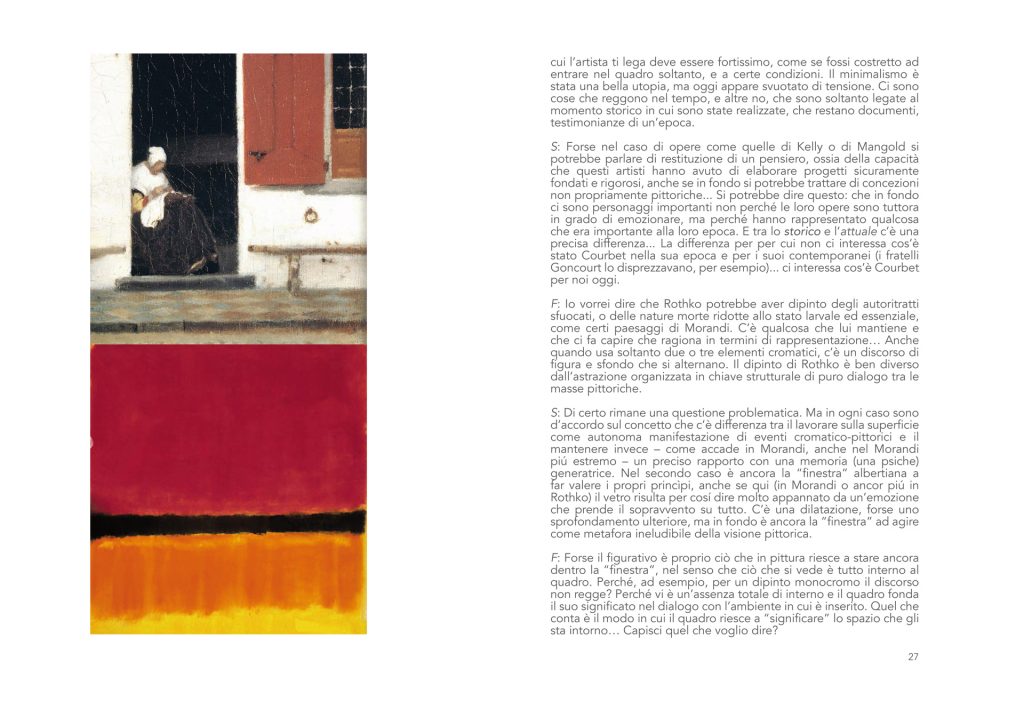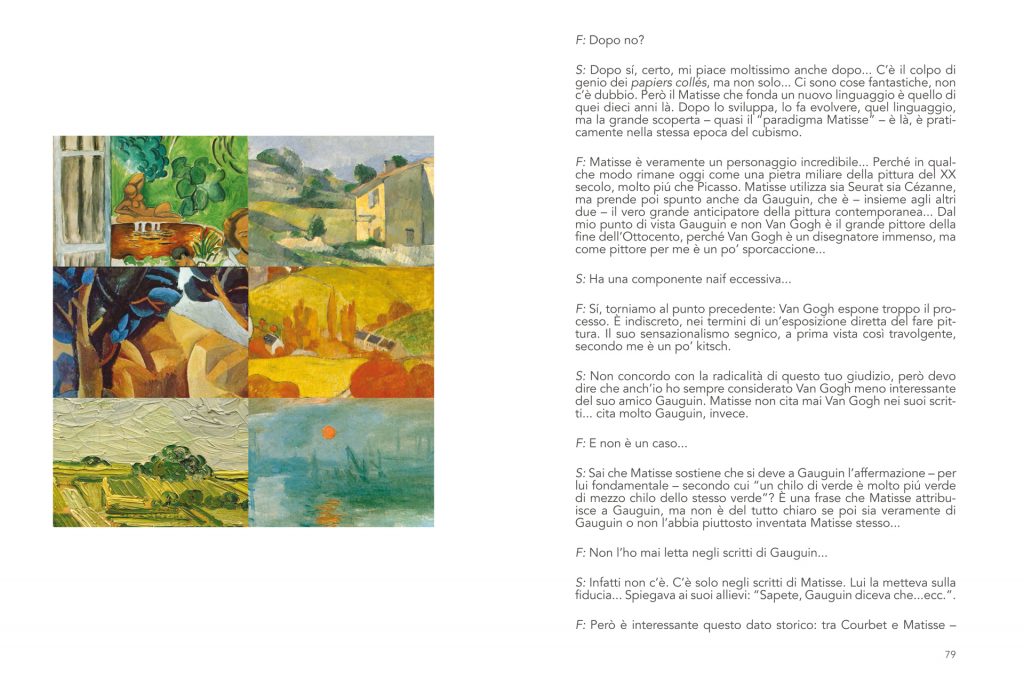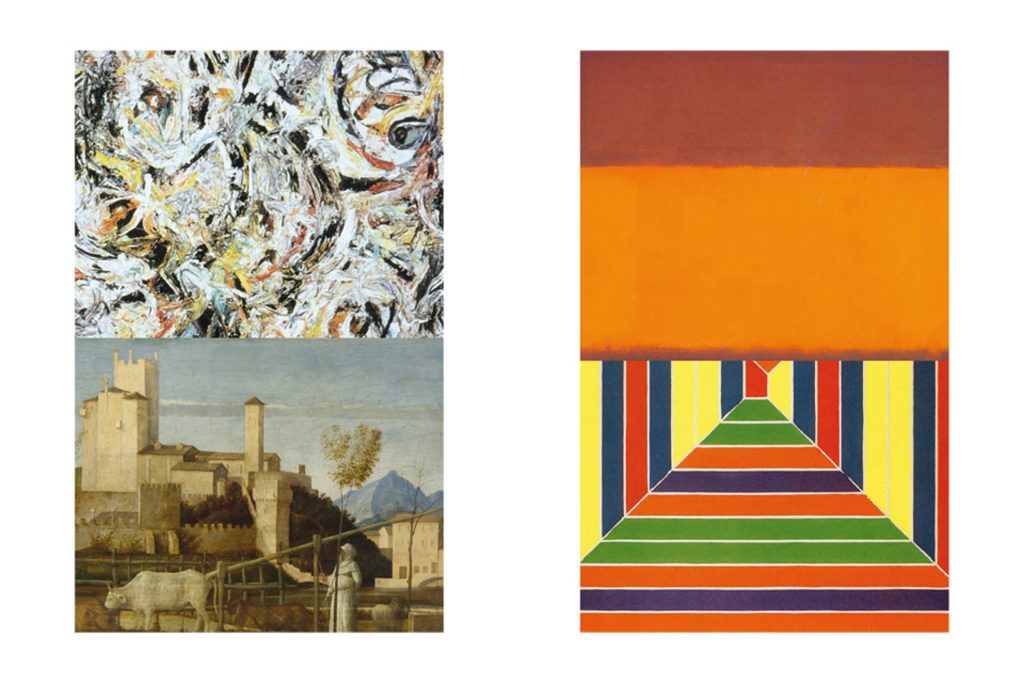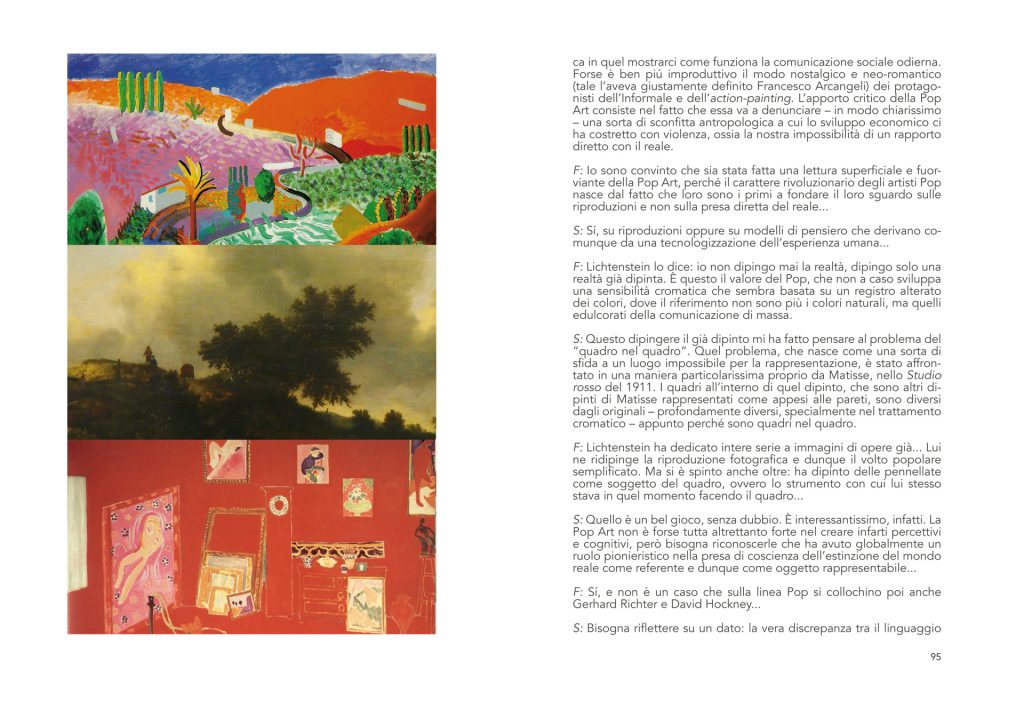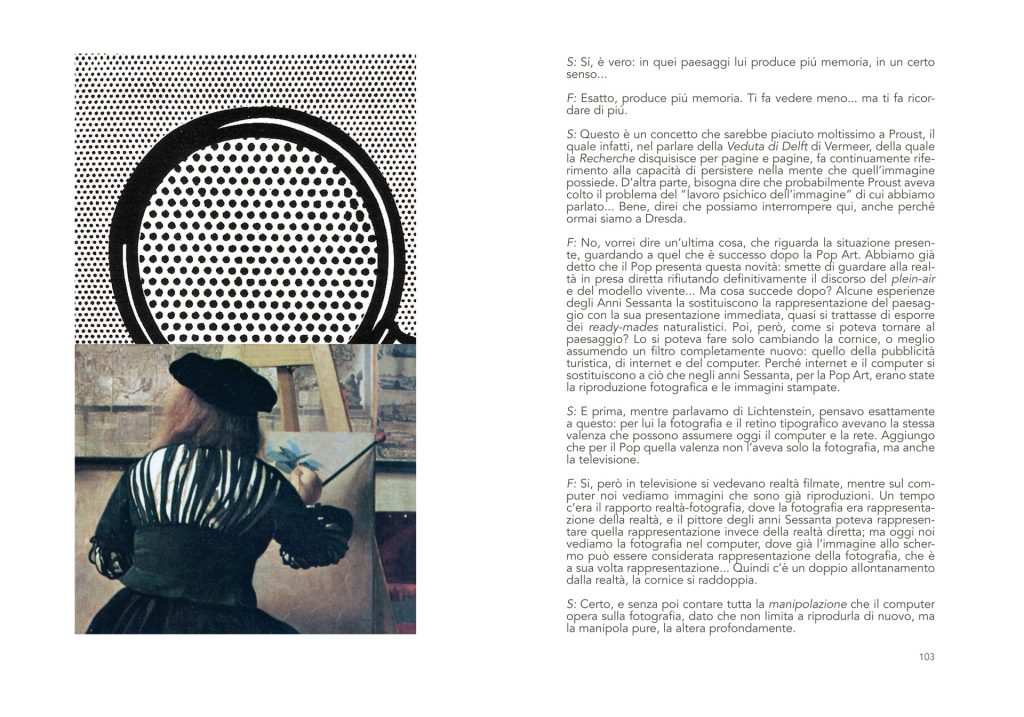[…] If we look at de Marco’s art in perspective, we realize that the dynamic that sees him fluctuating between the abstract – like the impossibility of seeing the world, much less representing it – and the figurative is part of what drives his research. Moreover, we can also observe how western pictorial tradition is an inexhaustible resource for the artist that he can draw on for going beyond the problematic silence of images, by ever more fervently grappling with the patterns of tradition within the narrow confines of pictorial language.
This happened for the first time in 2007, on the occasion of the exhibition at the PAC of Ferrara dedicated to the cycle of 15th century frescoes in the Salone dei Mesi in the Schifanoia Palace; then, with Portrait of a Collection, an exhibition held at the Estorick Collection in London in 2009 (Fig. 5). For this, de Marco created a group of works in dialogue with works of Italian artists of the first half of the 20th century which eventually formed one of the key tools for the research developed in the two major projects devoted to the landscape experience in our contemporary era: the exhibition Vedute, presented at the Maramotti Collection in 2010,6 and Stella, a book and exhibition, hosted at the Galleria nazionale d’arte moderna in Rome as well as being shown in Amsterdam and Berlin in 2013 and 2014
[…] Whithin this framework, showing the works in museums [in 2017] in proximity to the “originals” reflects a very specific choice. The promotion of live enjoyment – which on the one hand draws attention to the issues of looking and on the other, has the power to emphasize the physical and specific characteristics of the medium, precisely that which is lost along the way with digital viewing – goes hand-in-hand with the bet made by the artist in relating himself to the models.
Maria Luisa Pacelli
(from “Sui generi”, in the catalogue of the show “Flavio de Marco.Sui generi” at Galleria Sabauda in Turin, Galleria Estense in Modena and Galleria Corsini in Rome, 2017)
"Storie dell'occhio" (2008). By Jonny Costantino and Fabio Badolato (Baco Productions)
“The Future masters are basically those who have a special relationship with our lives, in terms of a greater chance of finding points of orientation for our daily life, the ones with which we are agree at the first glance, like when you meet a stranger and you immediately perceive something familiar, and you would like to invite him to drink a Martini to discuss together. These authors are for us friends who more than others illuminate our moments of solitude, moments necessary in every really creative field, those that more than others remind us that if discipline is needful in the living it is only because ideas require a serious context to come to light, finally those that more than others give the thickness to our humanity as a way to the unknown”.
Flavio de Marco, Sandro Sproccati
from the introduction of the book “Futuri maestri”, 2017
